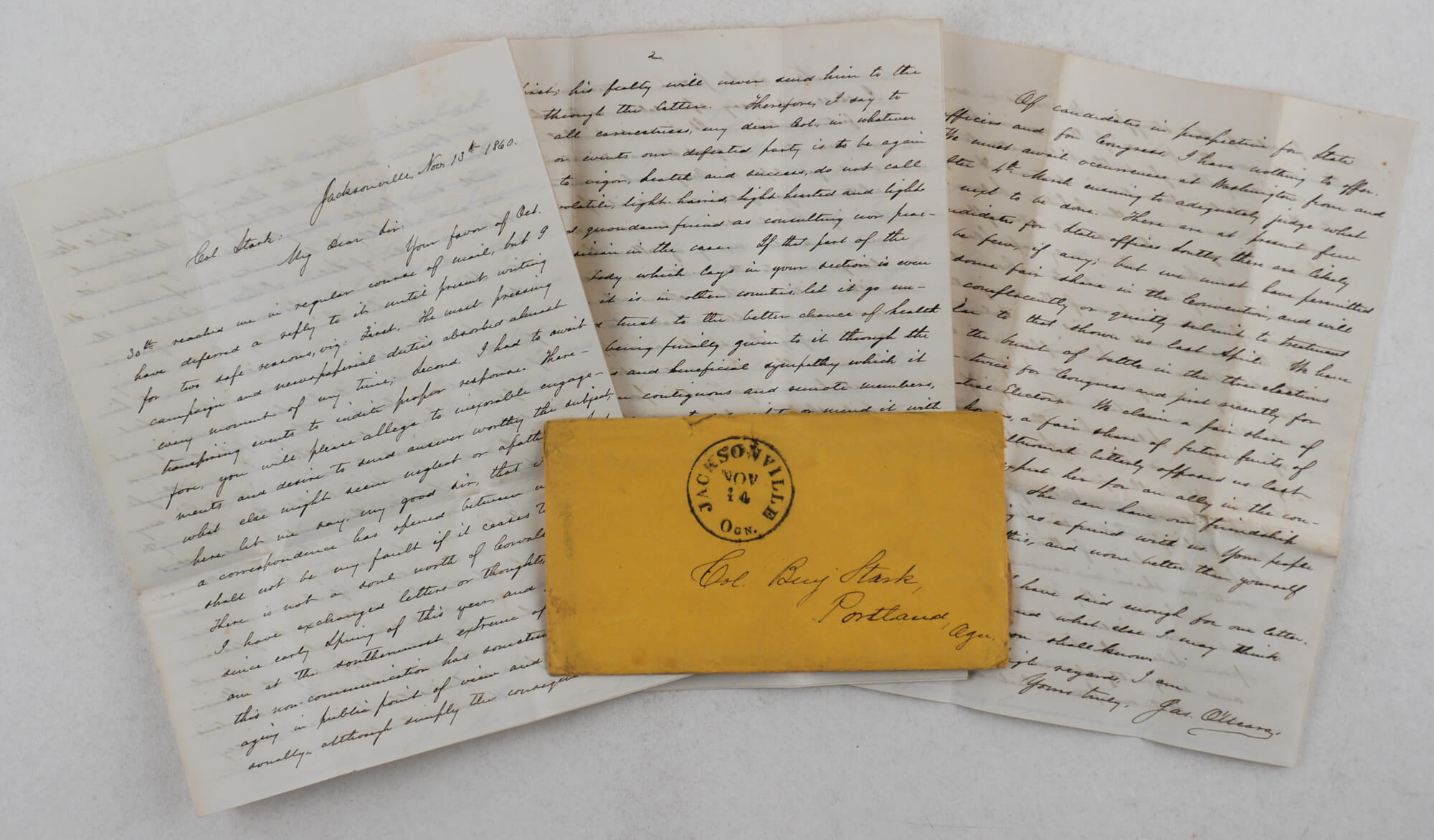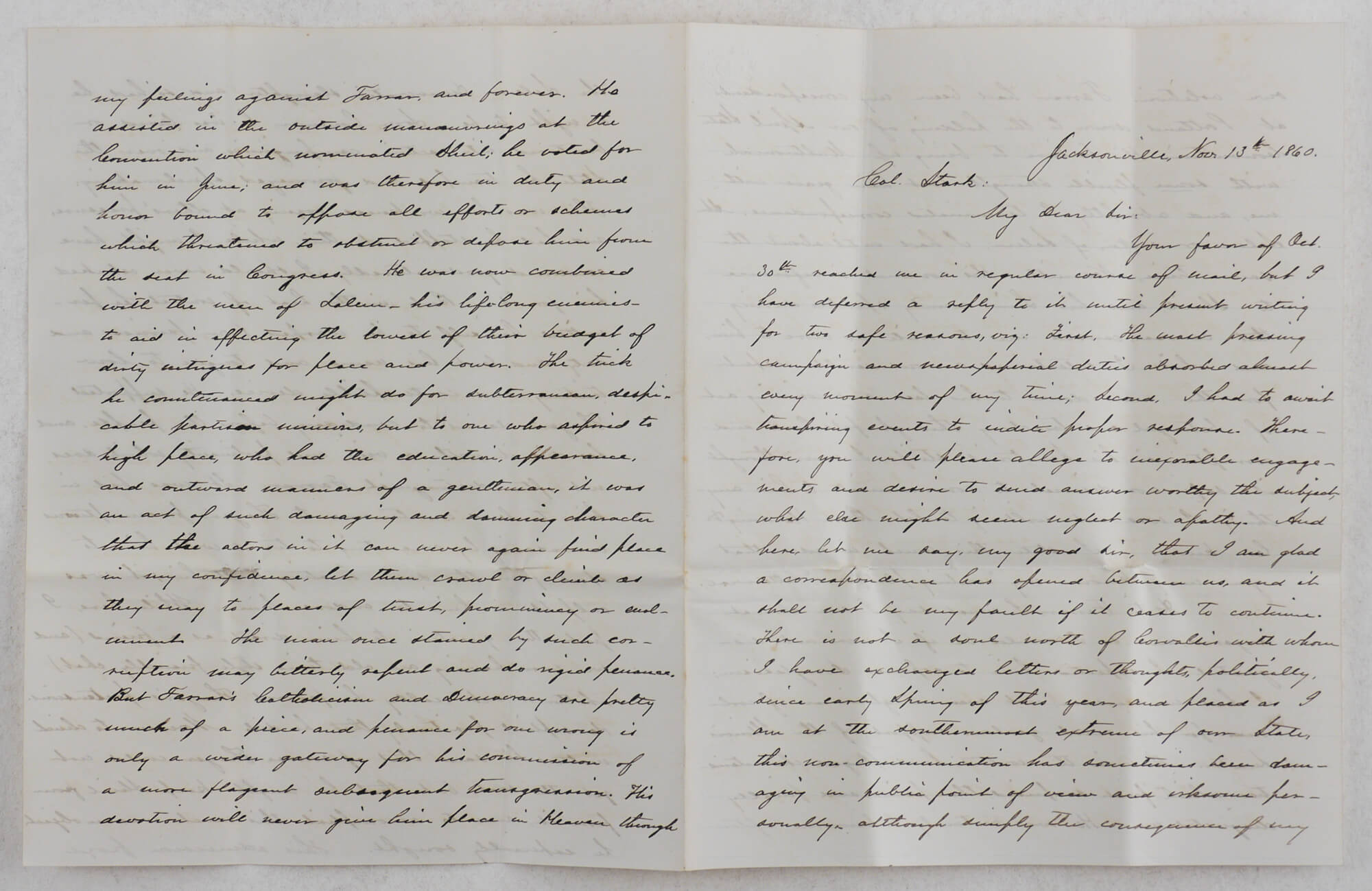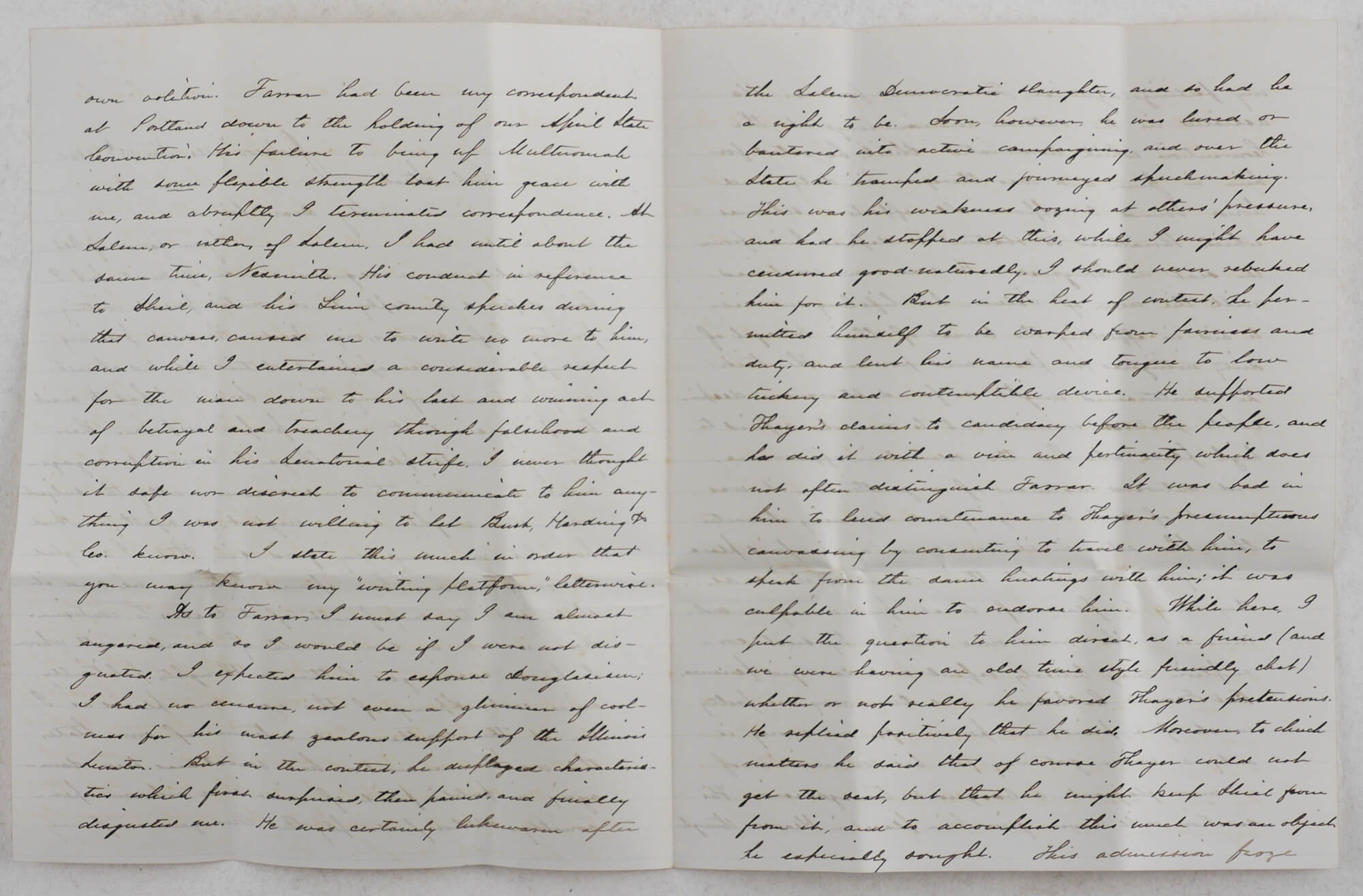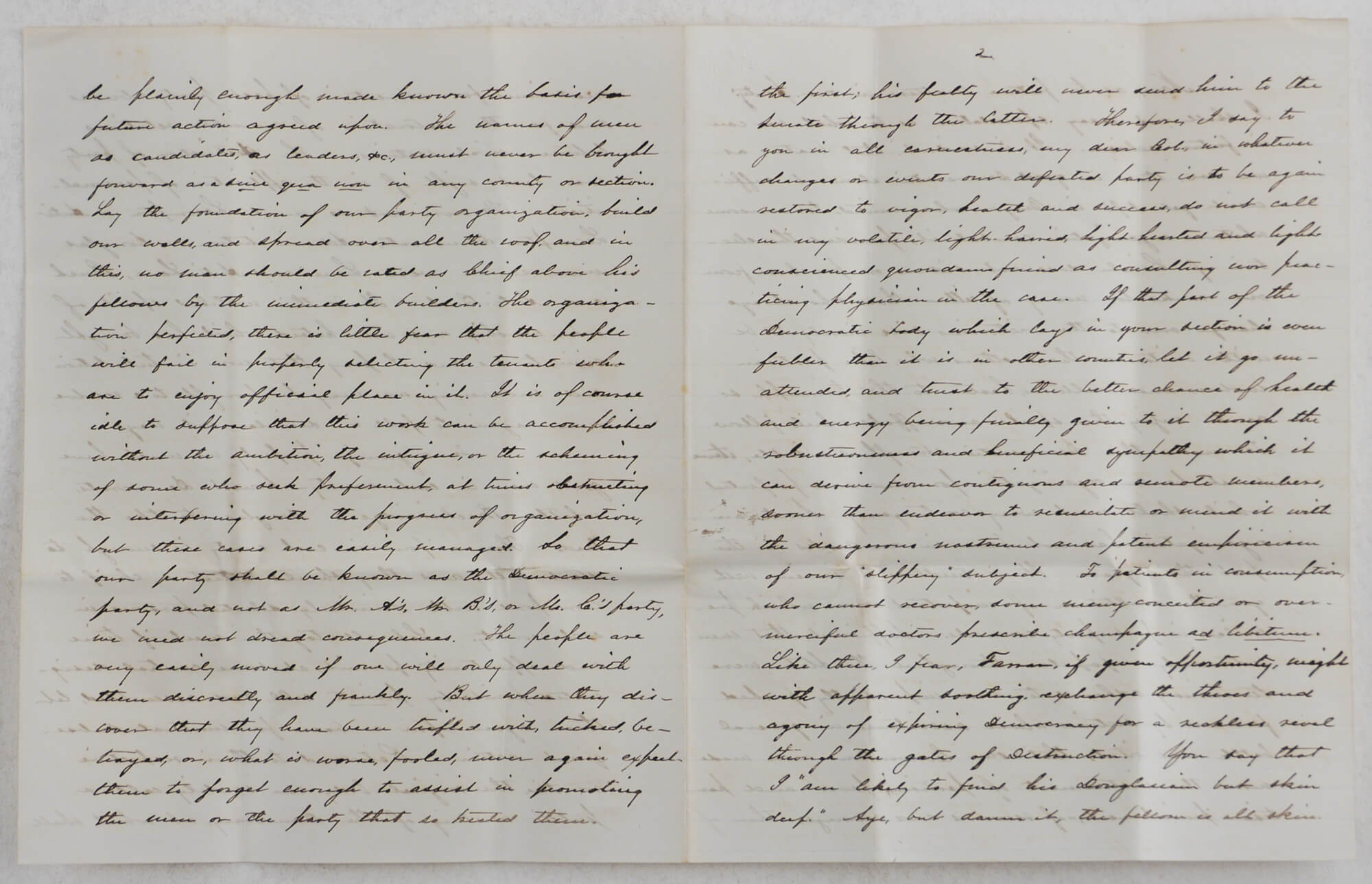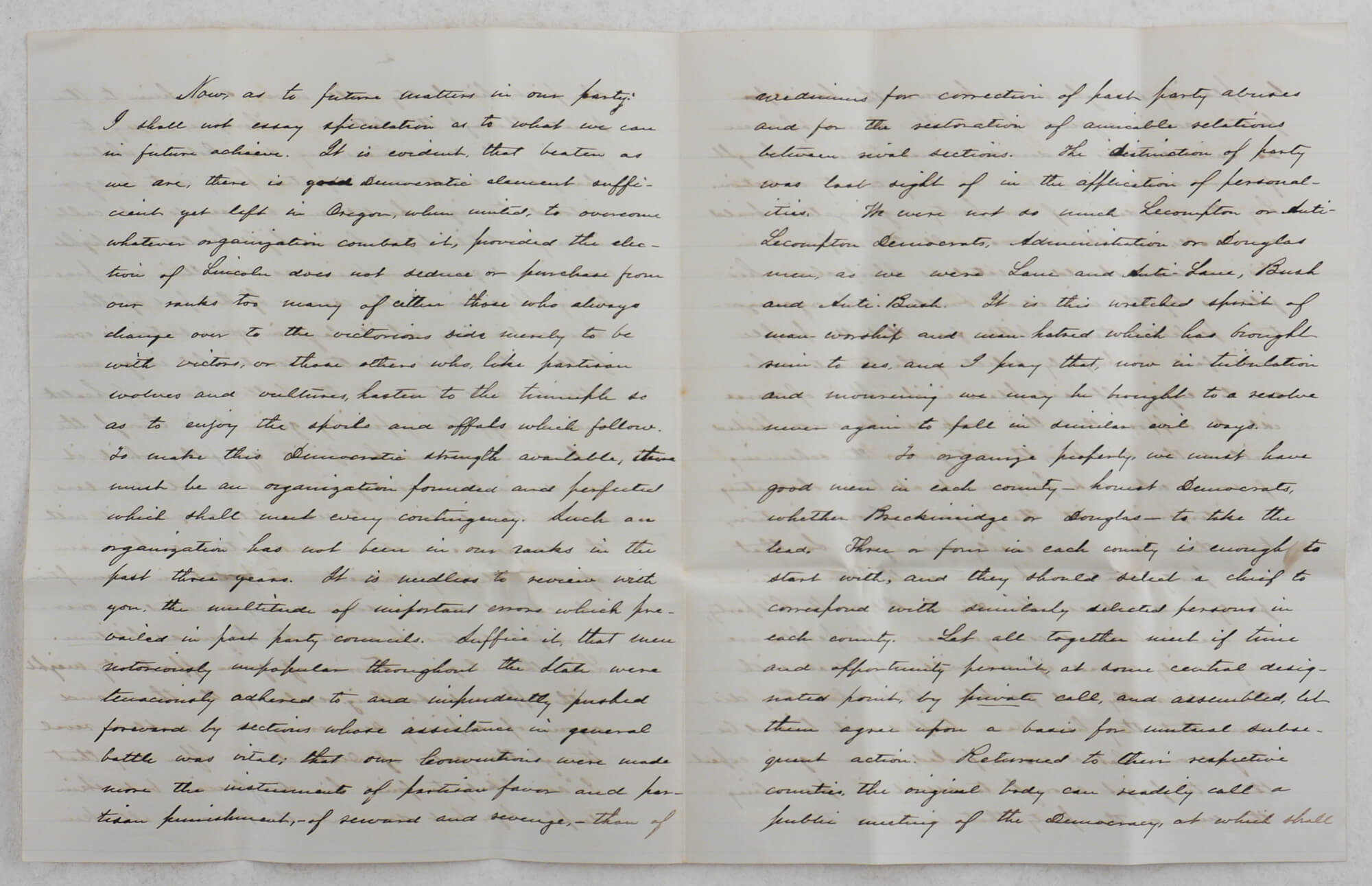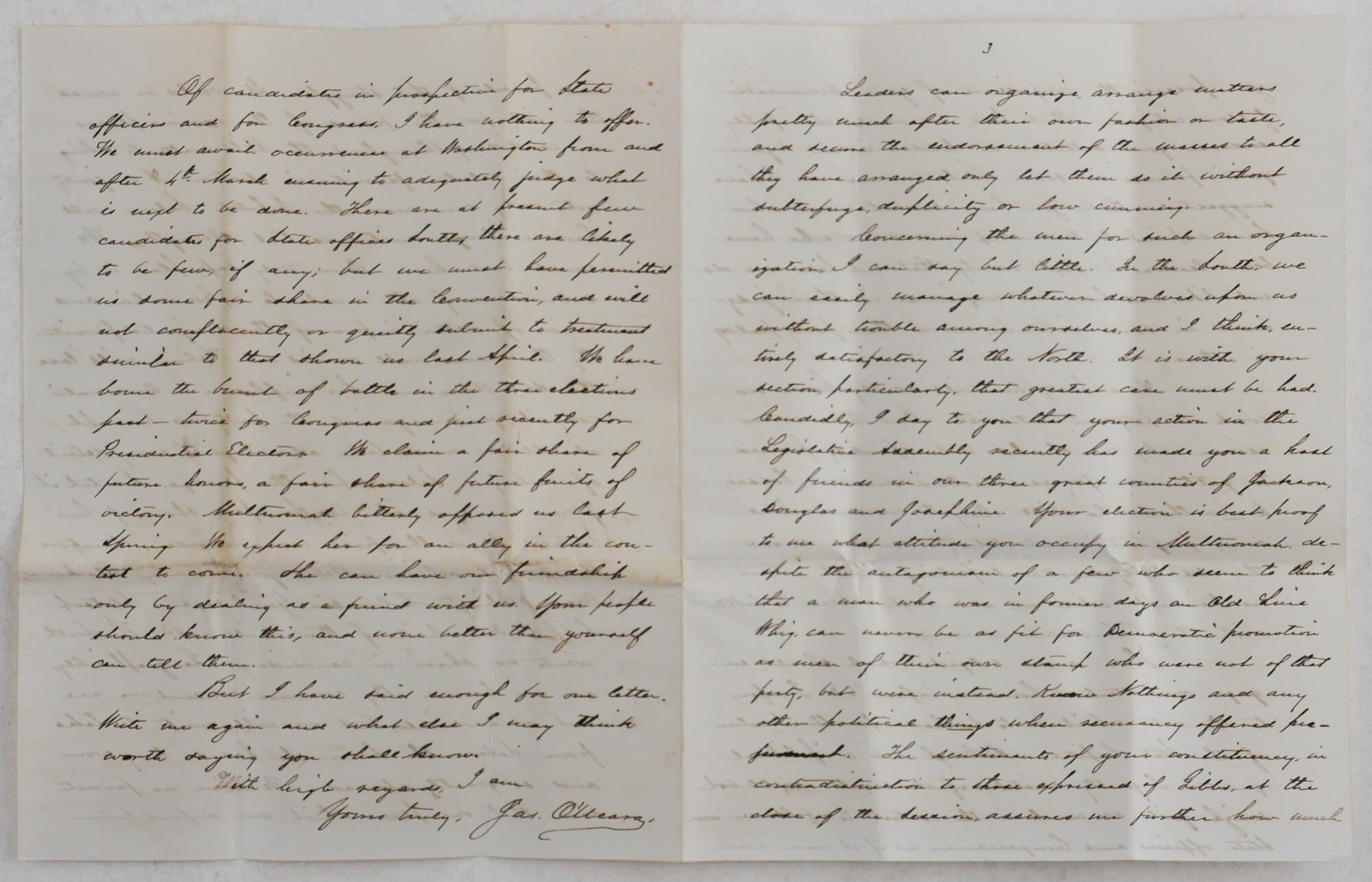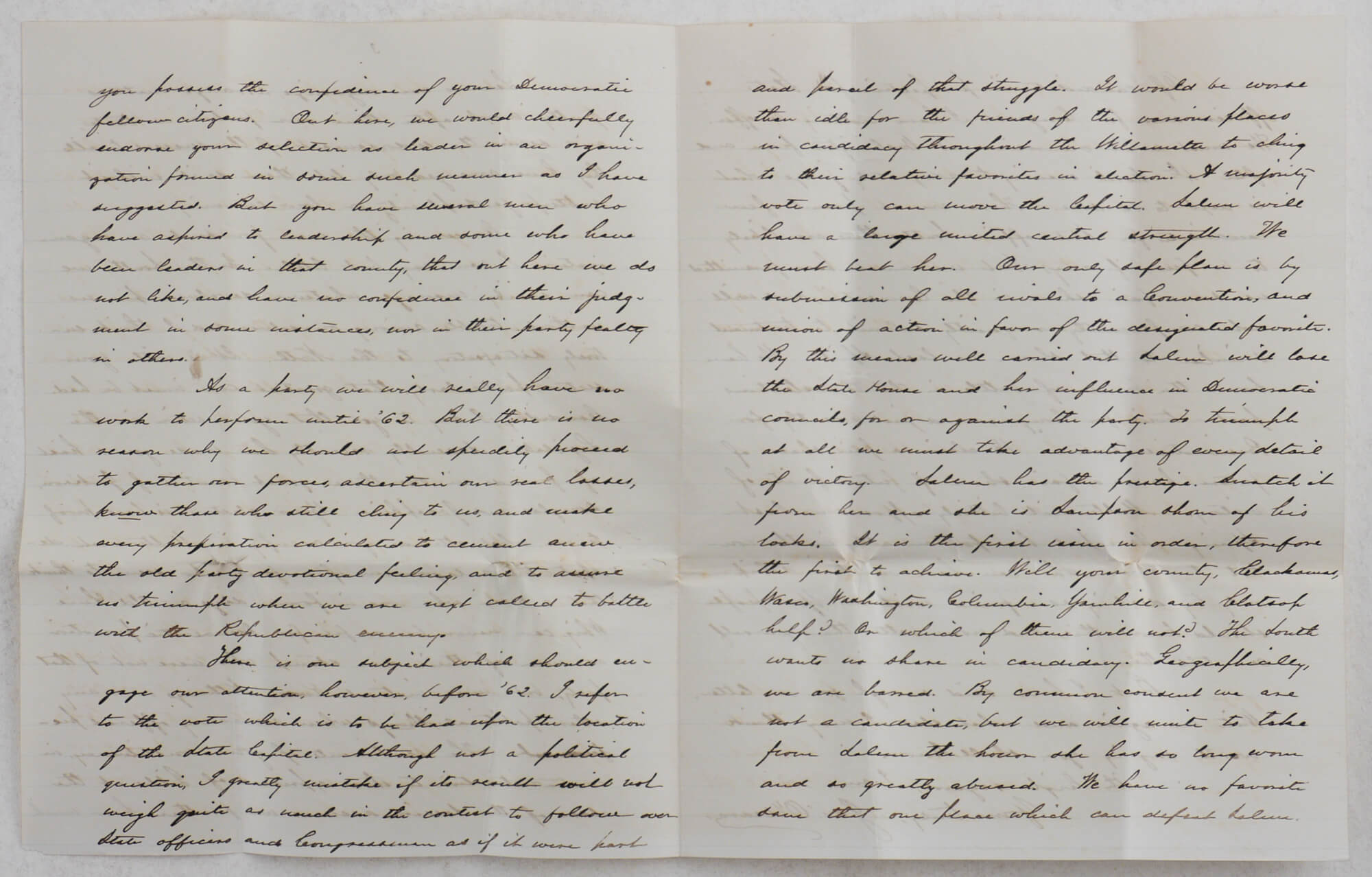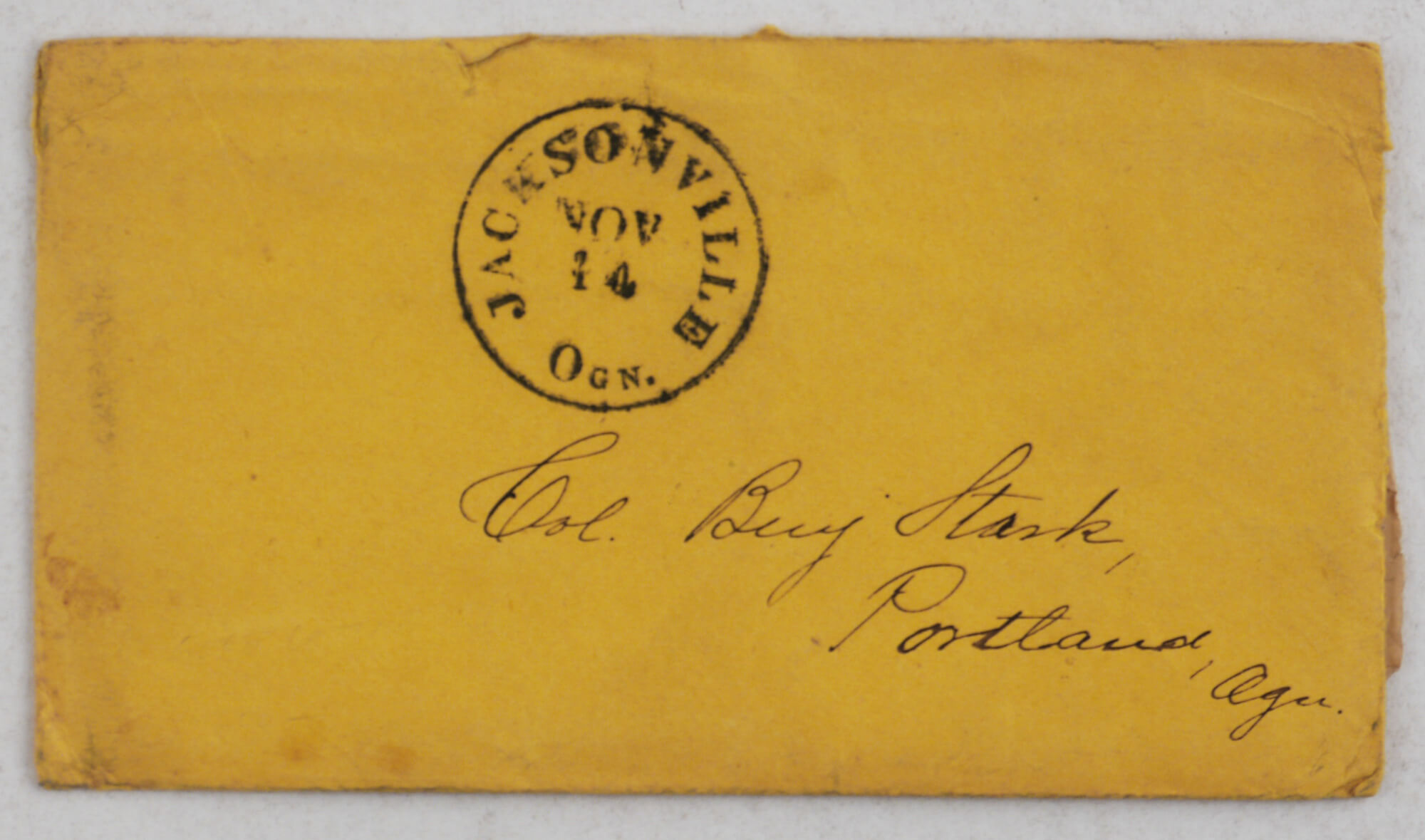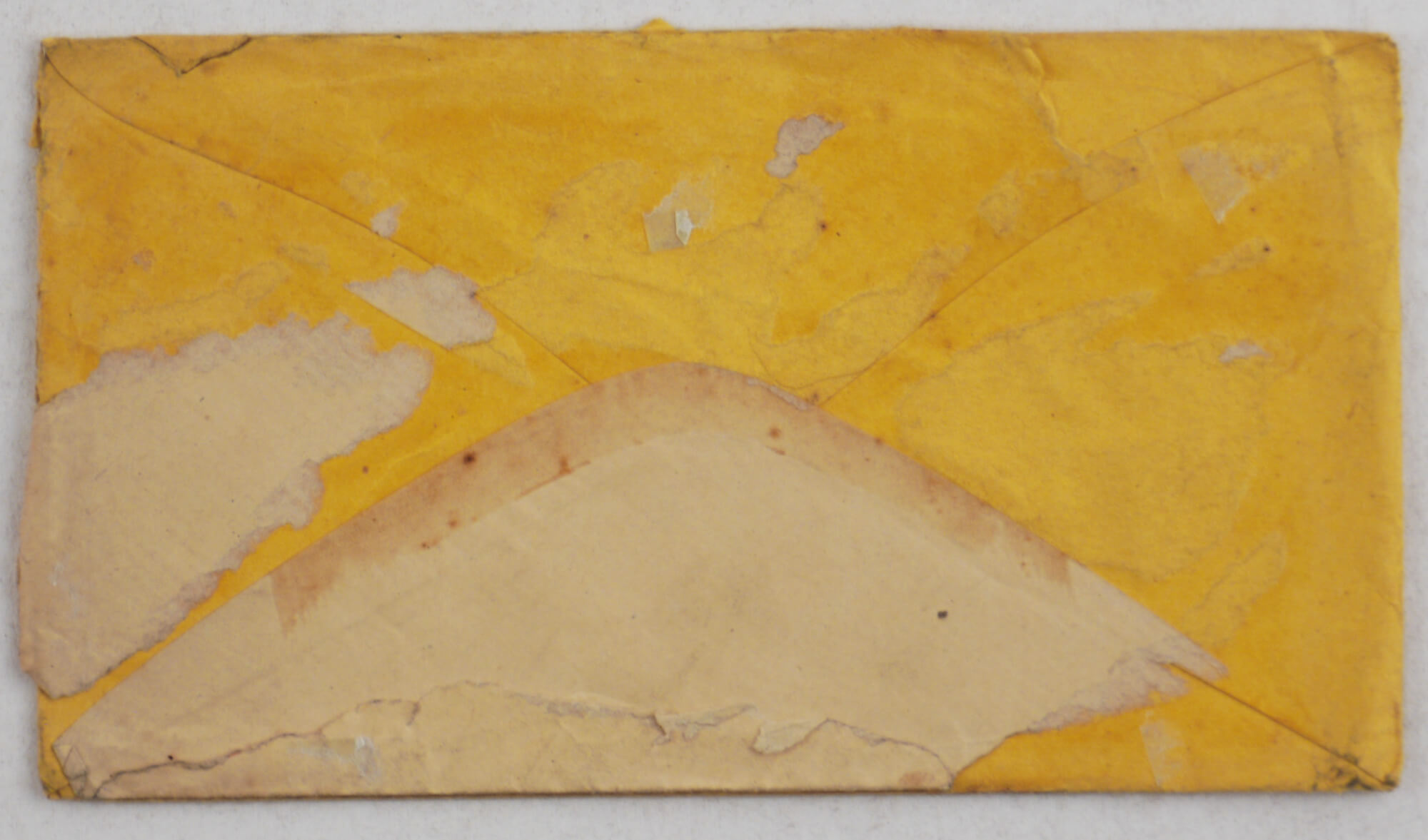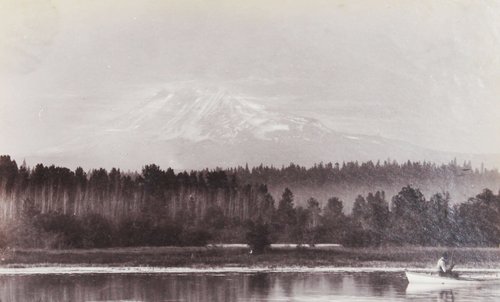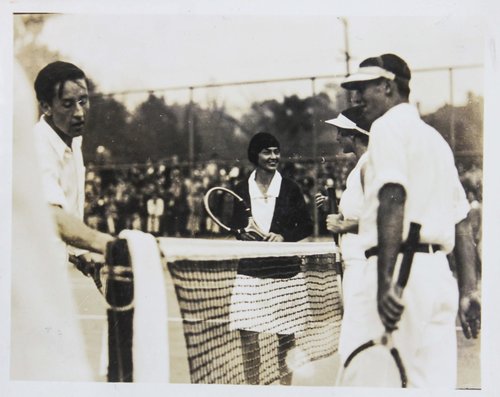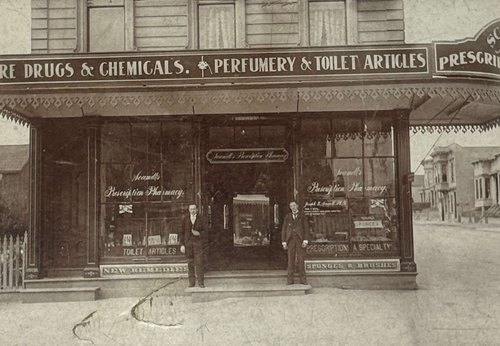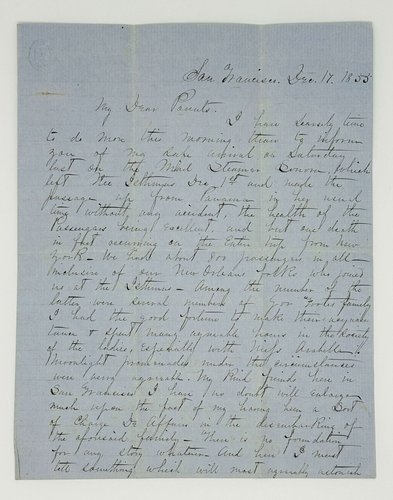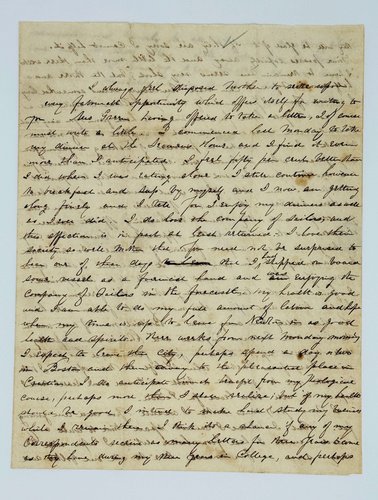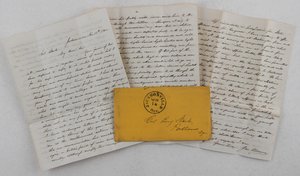
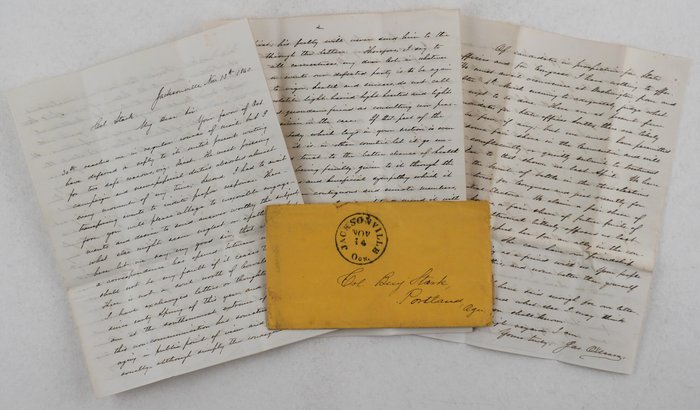
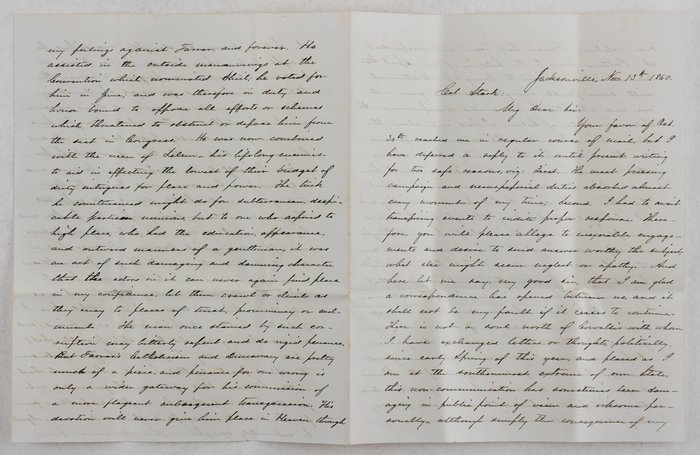
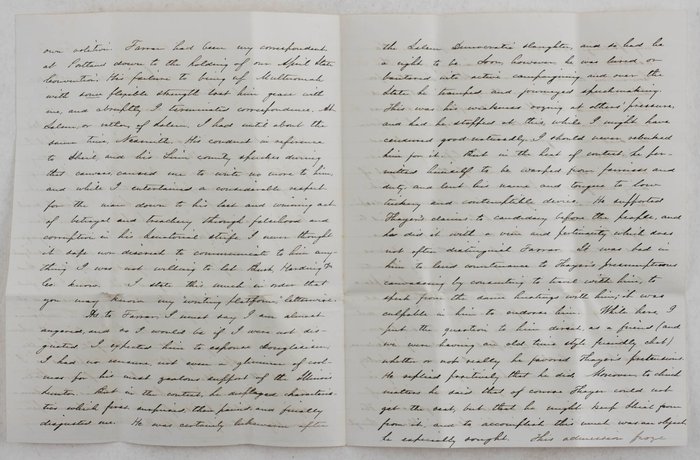
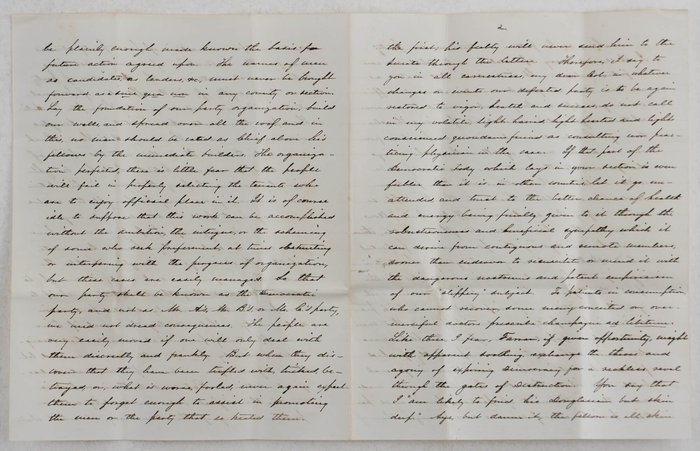
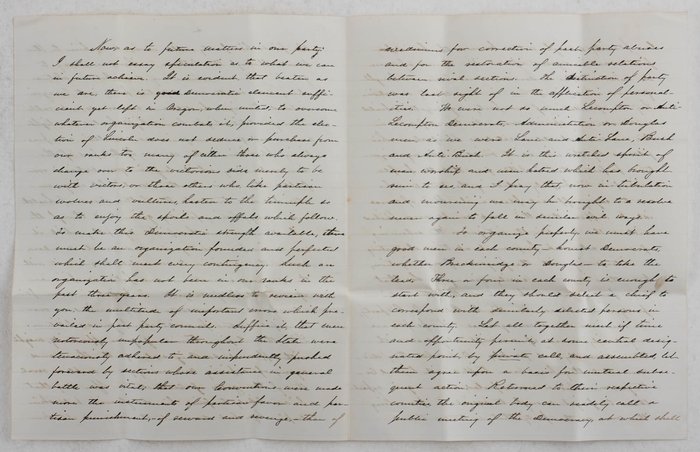
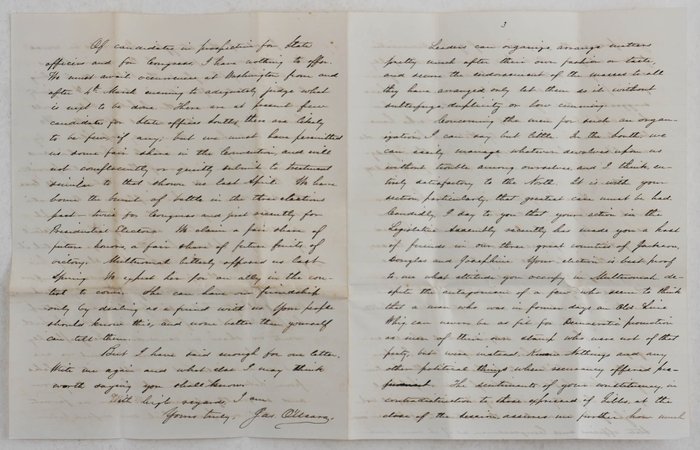
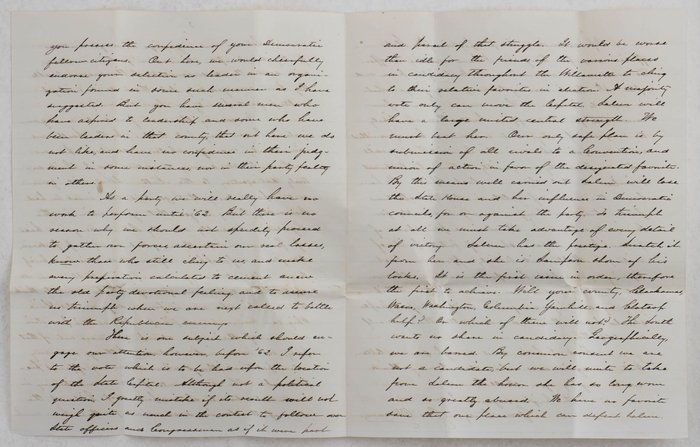
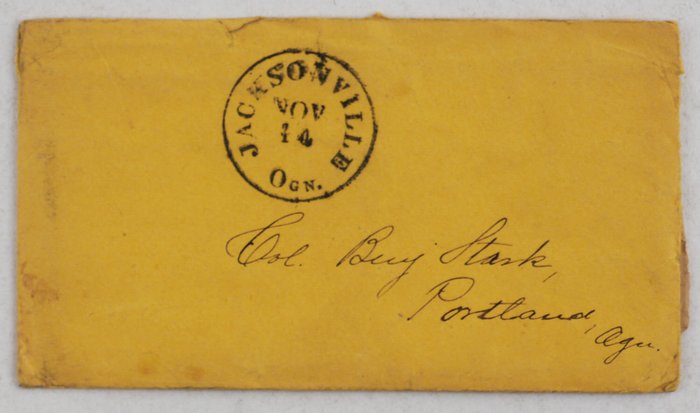
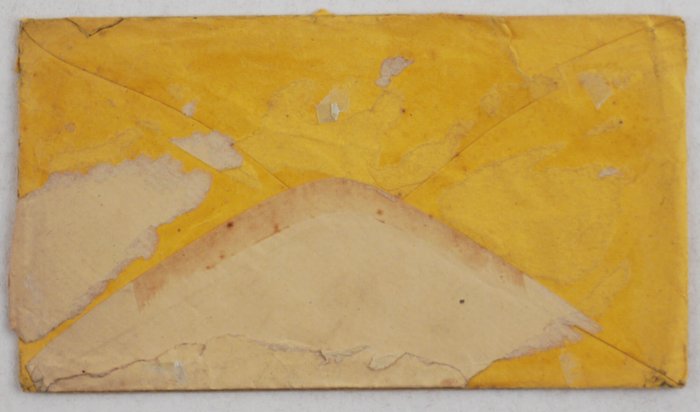
#M84
November 1860
Three Octavo bifoliums (ca. 20,5x16 cm or 8 x 6 ¼ in). 12 pp. Brown ink on creamy lined wove paper. First leaves of each bifolium with blind-stamped papermaker’s monograms in the left upper corners. With the original envelope ca. 8x14 cm (3 x 5 ½ in), addressed to “Col. Benj. Stark, Portland, Ogn.” and with an ink postal stamp. Foldmarks, several minor tears on folds, envelope with a residue of a paper leaf it used to be attached to on verso, but overall a very good letter written in a legible hand.
Historically significant extensive original manuscript letter illustrating political struggle and disagreements among the Oregonian Democrats before the Presidential election on November 6, 1860, and their emotions after the Republican candidate Abraham Lincoln had become the President of the United States. The author noted Oregonian Democrat journalist James O’Meara, heavily criticizes William H. Harrar (District Attorney for Oregon in 1853-59 and the mayor of Portland in 1862) and mentions other state politicians, including Andrew J. Thayer (1818-1873), who in November 1860 was elected as a Democratic member of the U.S. House of Representatives from Oregon’s At-large district. O’Meara also contemplates future actions of Oregonian Democrats, preparations for the 1862 election of the members of the U.S. House of Representatives, and urges his correspondent to join him in the attempt to move the state capital from Salem. Overall an interesting content-rich original source on the political history of Oregon in the months leading up to the American Civil War.
James O’Meara, a pioneer California and Oregon journalist, was active in Oregon in the 1850s-1870s, when he edited several Democratic periodicals, including the “Democratic Standard,” “Southern Oregon Gazette,” the “Oregon State Democrat,” “Portland Bulletin,” “the Portland News,” and others. Since the late 1870s, he worked as a journalist and editor in California and published several articles on the history of the West Coast (see more).
An Oregon landowner and merchant, Benjamin Stark served several terms in Oregon’s House of Representatives (1852 and 1860) and fought for the Oregon armed forces during the Rogue River War. In 1861-62, he was a Democratic U.S. Senator from Oregon and participated in the 1864 Democratic National Convention in Chicago.
Excerpts from the letter:
“<…> There is not a soul north of Corvallis with whom I have exchanged letters of thoughts, politically, since early spring of this year, and placed as I am at the southernmost extreme of our State, this non-communication has sometimes been damaging in a public point of view and irksome personally, although simply the consequence of my violation. Farrar had been my correspondent at Portland down to the holding of our April State Convention. His failure to build up Multnomah with some flexible strength lost him grace with me, and abruptly I terminated correspondence. <…> I expected him to espouse Douglasism; I had no censure, not even a glimpse of coolness for his most zealous support of the Illinois Senator [talking about Abraham Lincoln]. <…> He was certainly lukewarm after the Salem Democratic slaughter, and so had he a right to be. Soon, however, he was lured or bantered into active campaigning and over the State he tramped and journeyed speechmaking. <…> in the heat of contest, he permitted himself to be warped from fairness and duty, and let his name and tongue to low trickery and contemptible device. He supported Thayer’s claims to candidacy before the people <…>.”
About the future of Democrats in Oregon: “<…> It is evident that beaten as we are, there is good Democratic element sufficient yet left in Oregon, when united, to overcome whatever organization combats it, provided the election of Lincoln does not seduce or purchase from our ranks too many of <…> those who always change over to the victorian’s side merely to be with victors <…> It is needless to review with you, the multitude of important errors which prevailed in past party councils. <…> We were not so much Lecompton or Anti-Lecompton Democrats, Administration or Douglas men, as we were Lane and Anti-Lane, Bush and Anti-Bush. It is this wretched spirit of man-worship and man-hatred which has brought ruin to us, and I say that, now in tribulation and mourning, we may be brought to a resolve never again to fall in similar evil ways <…>As a party, we will really have nothing to perform until ’62. But there is no reason why we should not speedily proceed to gather our forces, ascertain our real losses, know those who still cling to us, and make every preparation calculated to cement anew the old party devotional feeling, and to assure us triumph when we are next called to battle with the Republican enemy.”
About Benjamin Stark and his role in the Democratic party of Oregon: “<…> Candidly, I say to you that your action in the Legislative Assembly recently has made you a host of friends in our three great counties of Jackson, Douglas and Josephine. Your election is best proof to me what attitude you occupy in Multnomah, despite the antagonism of a few who seem to think that a man who was in former days an Old Line Whig, can never be as fit for Democratic promotion as men of their own stamp who were not of that party, but were instead Know Nothings and any other political things <…>”
About the attempt to move the state capital from Salem: “There is one subject which should engage our attention, however, before ’62. I refer to the vote which is to be had upon the location of the State Capital. <…> Salem will have a large united central strength. We must beat her. Our only safe plan is by submission of all rivals to a Convention and union of action in favor of the designated favorite. By this means well carried out Salem will lose the State House and her influence in Democratic councils, for or against the party. <…> Salem has the prestige. Snatch it from her and she is Sampson shorn of his locks. It is the first issue in order, therefore the first to achieve. Will your county, Clackamas, Wasco, Washington, Columbia, Yamhill, and Clatsop help? Or which of them will not? The South wants us share in candidacy. Geographically, we are [banned?] By common consent, we are not a candidate, but we will unite to take from Salem the honor she has so long worn and so greatly abused <…>.”

